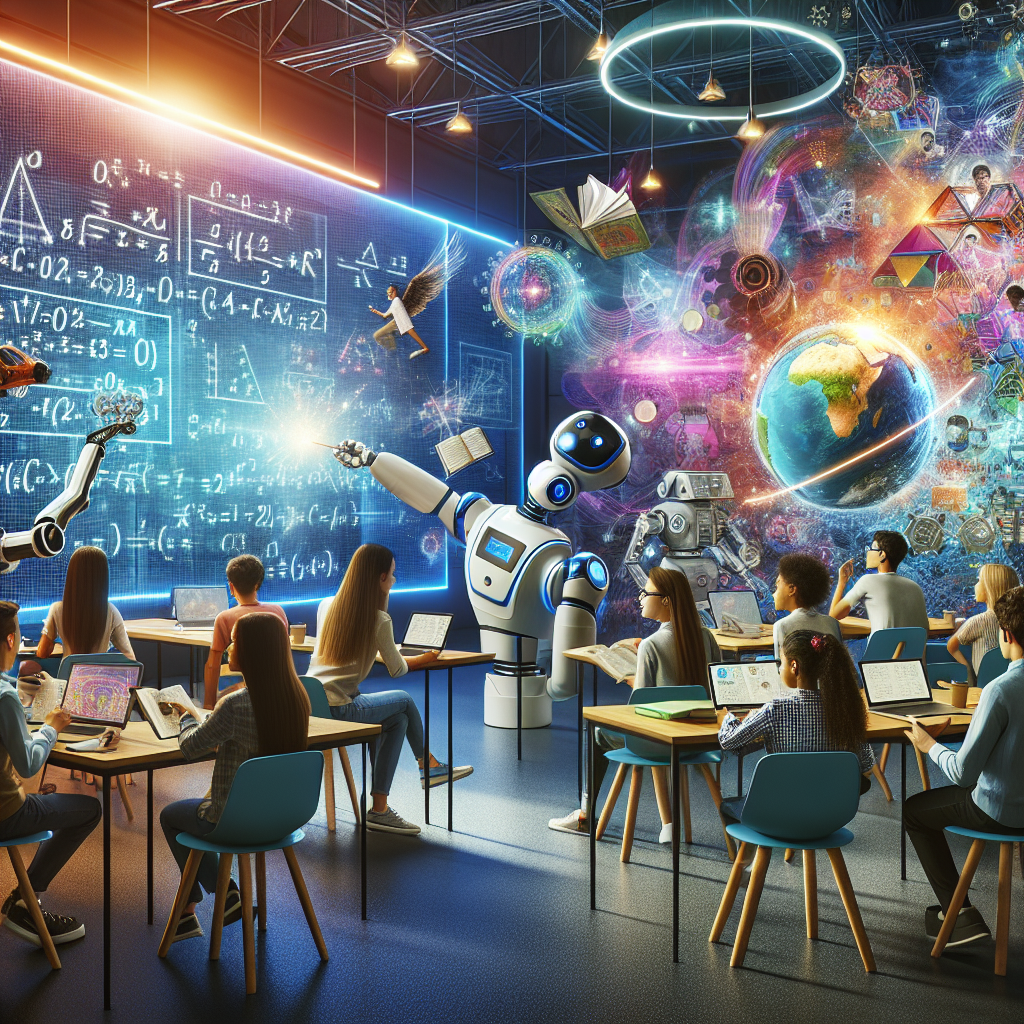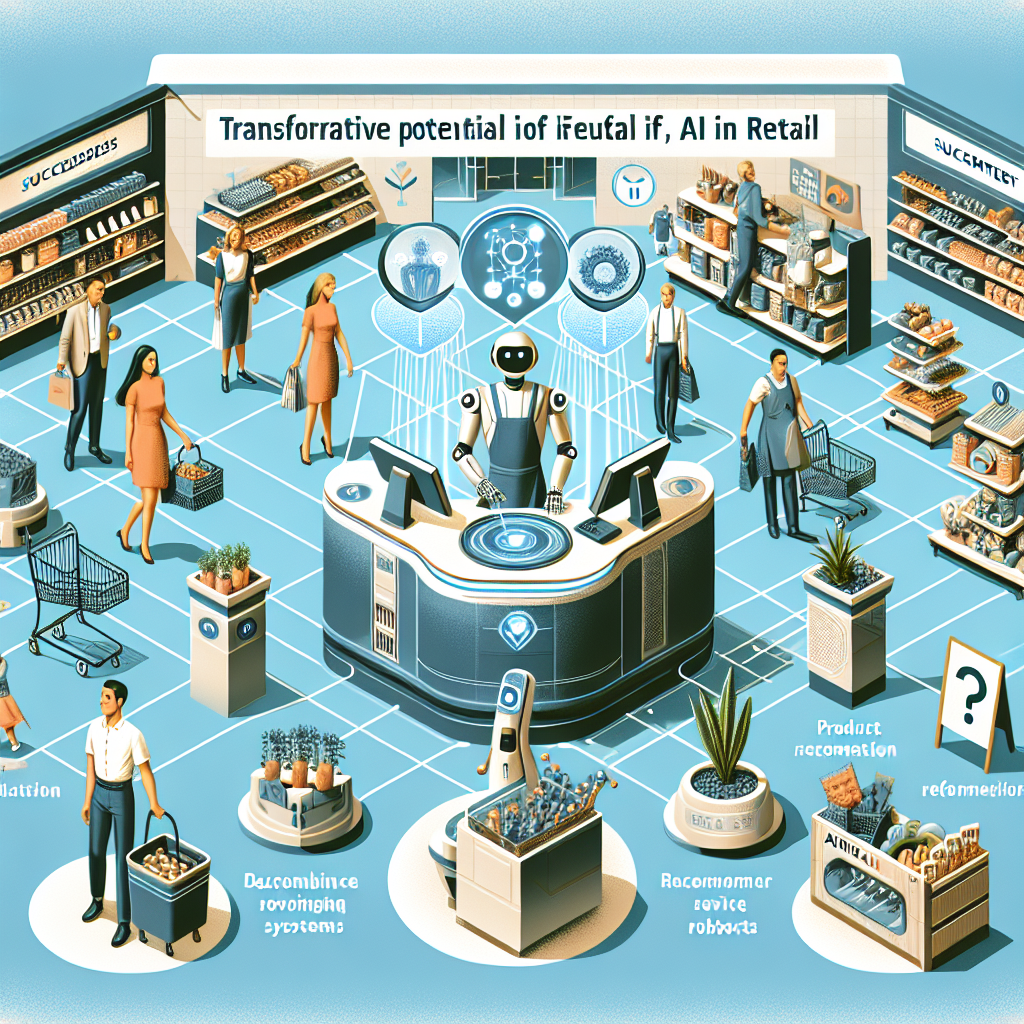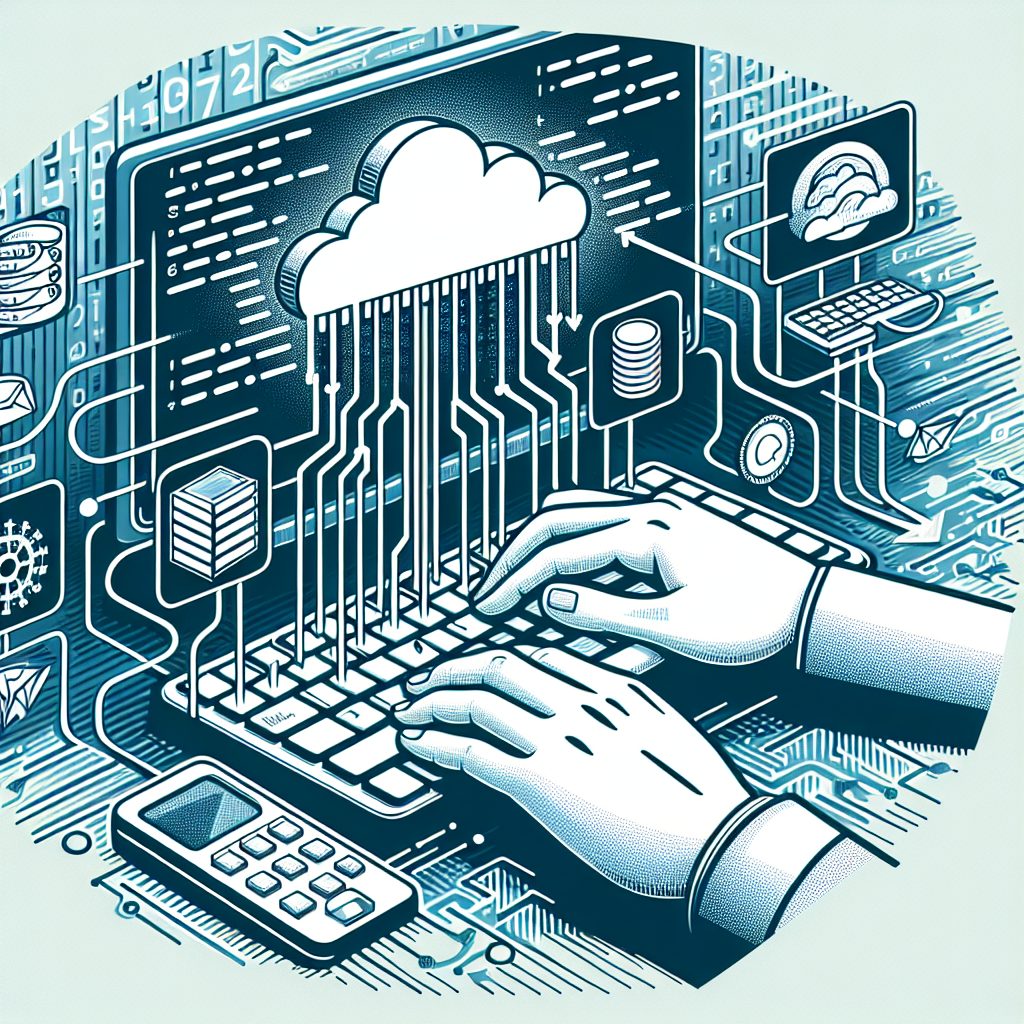Transforming Education with AI: Success Stories and Lessons Learned

```html
Artificial Intelligence (AI) is not just confined to tech startups and scientific laboratories; it is making significant inroads into the realm of education. The potential for AI to transform education by enhancing learning experiences, providing personalized instruction, and optimizing administrative tasks is immense. Today's post will take you through some compelling use cases of AI in education, highlighting the success stories as well as the lessons learned from less successful ventures.
Personalized Learning: Tailoring Education to Individual Needs
One of the most promising applications of AI in education is personalized learning. By analyzing students' learning patterns, strengths, and weaknesses, AI-driven platforms can offer customized educational content and resources. Platforms like DreamBox and Knewton use AI algorithms to adapt lessons to each student's pace, providing a more individualized learning experience. This has led to significant improvements in student engagement and academic performance.
However, the journey to personalized learning is fraught with challenges. One such obstacle is the quality and diversity of data used to train these AI models. In some instances, AI systems have exhibited biases, favoring certain groups over others due to biased training data. This emphasizes the need for inclusive and comprehensive datasets to ensure fairness and effectiveness in personalized learning tools.
Automated Grading: Streamlining Assessment Processes
AI is also revolutionizing the assessment landscape through automated grading systems. These systems can efficiently grade multiple-choice tests, essays, and even complex assignments, freeing up educators' time for more critical tasks like curriculum development and student mentorship. For example, Turnitin's AI-powered grading system has been widely adopted by educational institutions to provide quick and consistent feedback on student submissions.
Despite its advantages, automated grading systems have encountered skepticism and criticism. The most notable concern is the accuracy of these systems in evaluating subjective and creative assignments. There have been instances where AI grading software has failed to recognize nuanced arguments or creative expressions, leading to unfair evaluations. This underscores the importance of combining AI with human oversight to ensure a balanced and fair assessment process.
Virtual Teaching Assistants: Enhancing Classroom Experiences
Virtual teaching assistants (VTAs) are becoming valuable assets in classrooms and online learning environments. These AI-powered assistants can answer students' questions, provide supplementary materials, and even monitor class participation. Georgia Tech's Jill Watson, an AI teaching assistant developed using IBM's Watson, gained fame for helping students in an online course without them realizing they were interacting with a chatbot.
However, the implementation of VTAs is not without its setbacks. In some cases, students have expressed frustration with the inability of these AI systems to understand complex or context-specific queries. This highlights the need for continuous improvement and human back-up to address such limitations effectively.
AI in Educational Administration: Optimizing Operations
Beyond the classroom, AI is also making significant strides in educational administration. AI-driven platforms can streamline student admissions, manage timetables, and optimize resource allocation. One success story is the University of Murcia in Spain, which utilized AI to automate course scheduling, resulting in more efficient use of resources and improved student satisfaction.
Nevertheless, integrating AI into administrative processes requires careful planning and execution. A university in the UK faced difficulties when their AI system for managing student services malfunctioned, causing delays and confusion. This incident underscores the importance of thorough testing and backup plans when deploying AI in critical administrative functions.
The Future of AI in Education
The future of AI in education holds immense potential. As AI technologies continue to evolve, their applications in education will become even more sophisticated. From enhancing collaborative learning environments to developing advanced educational games, the possibilities are endless.
However, successful AI implementation in education mandates a balanced approach that combines technological advancements with ethical considerations. Ensuring data privacy, maintaining transparency, and preventing biases are crucial to maximizing the benefits of AI while mitigating its risks.
In conclusion, AI is poised to revolutionize education by offering personalized learning experiences, streamlining grading processes, enhancing classroom interactions, and optimizing administrative tasks. While success stories like those of DreamBox and Georgia Tech illustrate AI's transformative potential, lessons learned from challenges and failures provide valuable insights for future implementations. As we move forward, a thoughtful and ethical approach to AI in education will be key to unlocking its full potential and shaping the future of learning.
```



